Hydrogen 360: driving the hydrogen future
The Hydrogen 360 course offers a comprehensive overview of the production and use of hydrogen as a key solution for decarbonization. Participants will explore production routes, economic viability, regulations and strategies to harness the potential of hydrogen in Colombia, with a focus on sustainability and business opportunities. It includes case studies, visits to operational projects and networking sessions for hands-on experience.
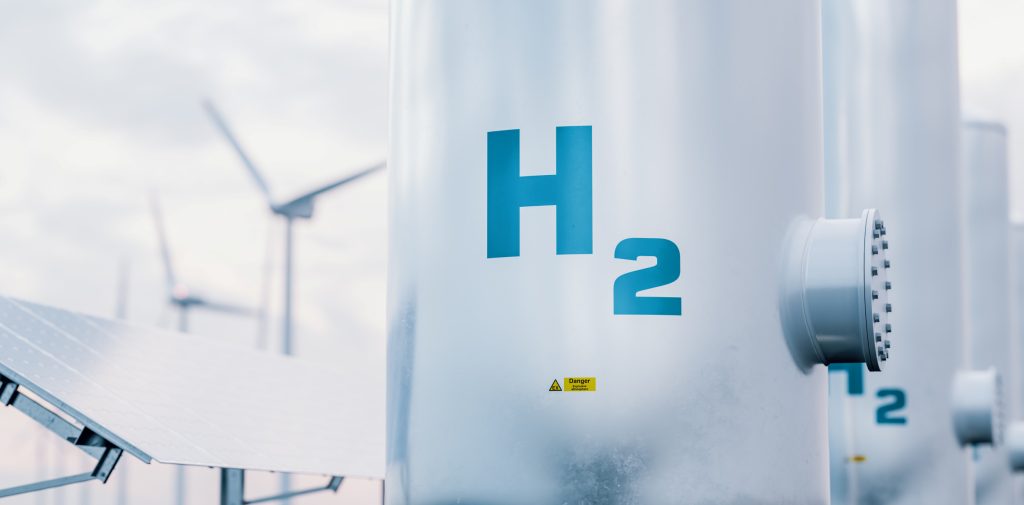
Overwiev
Hydrogen 360: driving the hydrogen future
29.10.2024 – 05.12.2024
Tuesdays and Thursdays 4:00 p.m. to 6:00 p.m.
Registration until October 25, 2024
virtual synchronous
25 hours
Cost: Organizing members: $790,000 COP + VAT
Partner: Colombian Hydrogen Association and World Energy Council Colombia
Form of evaluation: Evaluated on the basis of attendance
What will participants learn?
In the Hydrogen 360 course, participants will learn:
Global overview of hydrogen: They will understand the importance of hydrogen in the global energy transition and its role as a key alternative to reduce carbon emissions. They will learn about international trends in the use of hydrogen and how they influence global energy markets.
The state of hydrogen in Colombia: They will learn about the current situation of hydrogen in the country, the advances in its development and the opportunities offered by the Colombian regulatory framework, such as the Hydrogen Roadmap drawn up by the government.
Technological challenges and opportunities: They will learn about the technologies involved in the production and use of hydrogen, as well as the technological challenges that projects still face. They will learn to identify which production routes may be more viable in different contexts.
Regulatory and normative framework: They will acquire a basic understanding of the policies, regulations and fiscal incentives that govern hydrogen projects, both internationally and in Colombia, which will allow them to explore development opportunities in this sector.
Case studies and real experiences: They will analyze case studies of real hydrogen projects, which will allow them to better understand the application of this technology in sectors such as ammonia production or its integration into the gas grid.
Who is it intended for?
The Hydrogen 360 course is aimed at senior managers, leaders and professionals in the energy sector who seek to acquire a comprehensive understanding of the role of hydrogen in the transition to clean energy. It is designed for those who make strategic decisions, oversee innovative energy projects or develop public policies related to hydrogen. It is also ideal for consultants, researchers and academics interested in hydrogen’s potential to drive decarbonization and achieve sustainability goals.
Skills that participants can acquire:
- Identify the main hydrogen production routes: Participants will learn the basic concepts of the different ways to produce hydrogen (green, blue, gray), evaluating their advantages and disadvantages in an introductory way.
- Know the basic regulatory framework: Participants will acquire an initial understanding of the regulations and public policies applicable to hydrogen projects in Colombia, with a focus on tax incentives and environmental regulations.
- Assess technological challenges and opportunities: They will be able to identify the main technological challenges associated with hydrogen projects, as well as emerging opportunities for the implementation of this technology in the country.
- Apply basic industrial safety concepts: They will gain a basic understanding of risk management and safety standards applicable to hydrogen projects.
This course is divided in 8 modules
Module 1: Introduction to Hydrogen in the Energy Transition
Why hydrogen and why now?
Colombia in the hydrogen market
Context: Energy transition
Importance of hydrogen in the energy transition and Net Zero goals
International hydrogen economy
Module 2: Hydrogen in the Colombian Context
Physical and chemical properties of hydrogen
Technologies in the hydrogen value chain
Comparative aspects with other technologies
Technical aspects of hydrogen
Module 3: Hydrogen Project Safety
Risk assessment and safety analysis
Safety regulations and standards
Emergency response protocols
Module 4: Regulation and Policy in Hydrogen Projects
International regulations and standards
Hydrogen policies and legal framework
Tax incentives and subsidies
Hydrogen roadmaps
Environmental regulation and tax incentives
Environmental regulation applicable to hydrogen projects
Tax Incentives Applicable to Green and Blue Hydrogen Projects
Module 5: Certification and Project Financing
Certification of origin
Voluntary certification systems
Classification criteria and attributes
Attribute measurement methodologies
Hydrogen project financing
Financing strategies
Project structuring and formulation
Hydrogen project evaluation
Module 6: Optimization and Social Aspects of Hydrogen Projects
Project optimization
Design and engineering optimization
Financial and cost optimization
Socio-environmental aspects and work with communities
Social context in key hydrogen regions
Collaborative models for project development
Module 7: Case Studies and Practical Experiences
Case studies
Ammonia production
Hydrogen mixtures in the gas network
Other applications
Networking & Project visit
Hybrid session
Visit to an operational hydrogen production project
Module 8: Final Talk
Talk with international expert
Staying up to date on new courses?
Allied companies and educational institutions
German-Colombian Chamber of Industry and Commerce
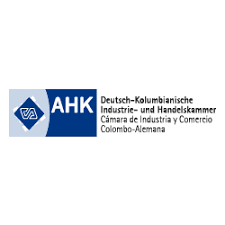
Through CERFER (Centro Regional de Formación en Energías Renovables), the AHK Colombia (German Chamber of Commerce for Colombia) promotes education and training in renewable energies in Colombia and the region. CERFER is a platform created to strengthen the exchange of knowledge and technologies between industry players, the public sector and the educational sector, in order to develop the human talent necessary for the energy transition to clean and sustainable sources.
Messer Colombia

Messer in Colombia is dedicated to the production and distribution of industrial and medical gases, being part of a global network of gas solutions. In Colombia, they offer a wide range of gases, including oxygen, nitrogen, argon, carbon dioxide and specialty gas mixtures. These products serve diverse industries, such as metallurgy, chemicals, healthcare, food and electronics, promoting safer, more sustainable and efficient processes.
National renewable energy laboratory

The National Renewable Energy Laboratory (NREL) is the U.S. National Renewable Energy Laboratory under the U.S. Department of Energy (DOE). Its primary mission is the research and development of clean and renewable energy technologies, seeking innovations that will accelerate the transition to a sustainable and efficient energy economy.
Hydrogen Association of Colombia
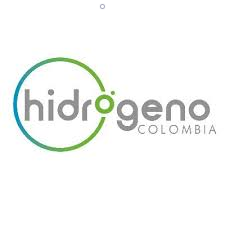 The Colombian Hydrogen Association (H2 Colombia) is a non-profit organization that seeks to promote the development and implementation of hydrogen-related technologies in Colombia. Its main mission is to contribute to the country's energy transition, positioning hydrogen as a key source for the decarbonization of the economy.
The Colombian Hydrogen Association (H2 Colombia) is a non-profit organization that seeks to promote the development and implementation of hydrogen-related technologies in Colombia. Its main mission is to contribute to the country's energy transition, positioning hydrogen as a key source for the decarbonization of the economy.
ARUP
 ARUP is a global consulting and design firm known for innovation in areas such as engineering, architecture and planning. It plays a key role in the transition to clean energy, offering planning, design and consulting services for the production, storage, distribution and use of hydrogen in sectors such as energy, transportation and industry.
ARUP is a global consulting and design firm known for innovation in areas such as engineering, architecture and planning. It plays a key role in the transition to clean energy, offering planning, design and consulting services for the production, storage, distribution and use of hydrogen in sectors such as energy, transportation and industry.
Technip Energies
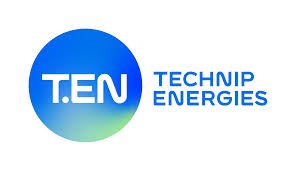 Technip Energies is a global engineering and technology company specializing in sustainable energy projects, with a particular focus on energy transition solutions. The company works on the development of infrastructure for a variety of energy sources, such as liquefied natural gas (LNG), hydrogen, biofuels, and renewable energies, promoting the decarbonization of the energy industry.
Technip Energies is a global engineering and technology company specializing in sustainable energy projects, with a particular focus on energy transition solutions. The company works on the development of infrastructure for a variety of energy sources, such as liquefied natural gas (LNG), hydrogen, biofuels, and renewable energies, promoting the decarbonization of the energy industry.
Latin American Energy Organization
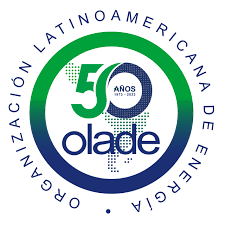 The Latin American Energy Organization (OLADE) is an intergovernmental organization founded in 1973, whose mission is to promote energy integration and cooperation among the countries of Latin America and the Caribbean. Its main objective is to contribute to the sustainable development of the region through energy policies that promote energy security, universal access to energy and the adoption of renewable sources.
The Latin American Energy Organization (OLADE) is an intergovernmental organization founded in 1973, whose mission is to promote energy integration and cooperation among the countries of Latin America and the Caribbean. Its main objective is to contribute to the sustainable development of the region through energy policies that promote energy security, universal access to energy and the adoption of renewable sources.
TRUST Gestión estratégica de riesgos
 TRUST Gestión Estratégica de Riesgos is a company specialized in the management of socio-political and security risks, as well as in sustainability and corporate responsibility. TRUST focuses on helping organizations face complex challenges through customized solutions that combine analysis methodologies, advanced technology and a deep understanding of the environment.
TRUST Gestión Estratégica de Riesgos is a company specialized in the management of socio-political and security risks, as well as in sustainability and corporate responsibility. TRUST focuses on helping organizations face complex challenges through customized solutions that combine analysis methodologies, advanced technology and a deep understanding of the environment.
Holland & Knight
![]() Holland & Knight is a global law firm offering comprehensive legal services in various areas of law. Founded in the United States, it has expanded internationally, providing advice in a wide range of sectors such as corporate, real estate, finance, energy, and litigation, among others. Its focus is to provide customized legal solutions, based on an in-depth knowledge of the industries in which its clients operate.
Holland & Knight is a global law firm offering comprehensive legal services in various areas of law. Founded in the United States, it has expanded internationally, providing advice in a wide range of sectors such as corporate, real estate, finance, energy, and litigation, among others. Its focus is to provide customized legal solutions, based on an in-depth knowledge of the industries in which its clients operate.
AFRY
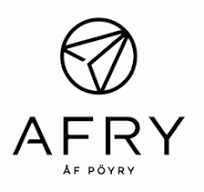 AFRY is a global engineering, design and consulting firm that specializes in supporting the transition to a more sustainable future. The company works across a wide range of sectors, including energy, industry, infrastructure, digital technology and urban development.
AFRY is a global engineering, design and consulting firm that specializes in supporting the transition to a more sustainable future. The company works across a wide range of sectors, including energy, industry, infrastructure, digital technology and urban development.
Espinel Abogados
 Espinel Abogados is an energy law firm that plays a key role in the development of the green hydrogen sector in Colombia. It provides legal advice on energy regulation and ensures regulatory compliance for hydrogen projects, both nationally and internationally. In addition, as an active member of the Colombian Hydrogen Association, the firm contributes to the creation of public policies, regulation and mechanisms to encourage the production and export of green hydrogen in the country.
Espinel Abogados is an energy law firm that plays a key role in the development of the green hydrogen sector in Colombia. It provides legal advice on energy regulation and ensures regulatory compliance for hydrogen projects, both nationally and internationally. In addition, as an active member of the Colombian Hydrogen Association, the firm contributes to the creation of public policies, regulation and mechanisms to encourage the production and export of green hydrogen in the country.
Promigas
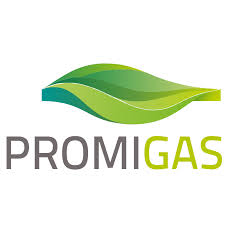 Promigas is one of the leading energy infrastructure companies in Colombia, with more than 45 years of experience in the sector. It is mainly engaged in the transportation and distribution of natural gas, as well as the generation and commercialization of electric power. Through its network of pipelines, Promigas transports natural gas from production areas to consumption centers, contributing to the development of energy infrastructure in Colombia and other countries in the region.
Promigas is one of the leading energy infrastructure companies in Colombia, with more than 45 years of experience in the sector. It is mainly engaged in the transportation and distribution of natural gas, as well as the generation and commercialization of electric power. Through its network of pipelines, Promigas transports natural gas from production areas to consumption centers, contributing to the development of energy infrastructure in Colombia and other countries in the region.
Kearney

Kearney is a global management consulting firm that provides strategic services to businesses and governments in diverse industries. Founded in 1926, Kearney specializes in helping clients improve performance, optimize operations, innovate products and services, and adapt to market changes. Its focus is on helping organizations address complex challenges and seize strategic opportunities to achieve sustainable growth.
EPM
 Empresas Públicas de Medellín (EPM) is a Colombian state-owned company that operates in the energy, gas, water, sanitation and telecommunications sectors. Founded in 1955, EPM is one of Colombia's largest and most diversified companies, with operations both domestically and internationally, particularly in Latin America.
Empresas Públicas de Medellín (EPM) is a Colombian state-owned company that operates in the energy, gas, water, sanitation and telecommunications sectors. Founded in 1955, EPM is one of Colombia's largest and most diversified companies, with operations both domestically and internationally, particularly in Latin America.
The World Bank
 The World Bank plays a crucial role in promoting renewable energy and the development of hydrogen-related projects globally, especially in developing countries. Its main focus is to finance, support and advise governments and the private sector to accelerate the transition to a low-carbon economy and promote access to sustainable energy.
The World Bank plays a crucial role in promoting renewable energy and the development of hydrogen-related projects globally, especially in developing countries. Its main focus is to finance, support and advise governments and the private sector to accelerate the transition to a low-carbon economy and promote access to sustainable energy.
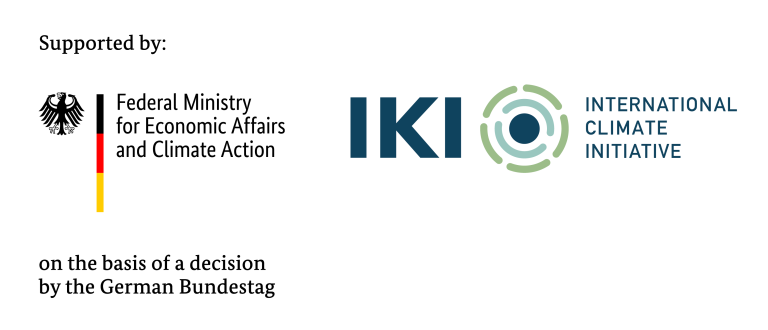
Lead



